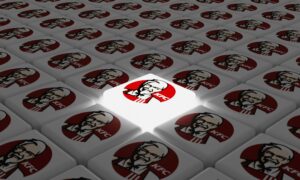A New Ally for the Latin American Left
Since the original posting of the piece, in early December, events have moved very quickly in South America. Marc Cooper has provided an update.In the related piece I analyze the politics of Venezuelan President Hugo Chavez as well as his impact on U.S. relations with the rest of the hemisphere. Since the original posting of the piece, in early December, events have moved very quickly in South America and we now offer this update:
With the election of socialist peasant leader Evo Morales as the president of Bolivia a few weeks ago, almost every major country in South America now has a left-of-center government. Morales joins President Hugo Chavez of Venezuela, President Nestor Kirchner of Argentina, President Tabare Vazquez of Uruguay and President Ignacio Lula da Silva of Brazil in an emerging block of opposition to Washington’s free-market policies of the last two decades. Coming elections in Peru, Mexico and Nicaragua could also bring leftist governments to power.
U.S. policymakers seem at a loss in how to deal with the new Latin American realities. Some of the new leftist presidents, like Da Silva of Brazil, have found a way to forge an independent path while still maintaining tenuously cooperative relationships with Washington. On the other hand, Chavez and President Bush seem locked in an escalating mud fight reminiscent of the early days of the Castro-Kennedy standoff of 40 years ago.
Which way the relationship between the just-elected Evo Morales and the U.S. will go remains an open question. Morales is an unconventional socialist who defies simple and stereotypical pigeonholing. He’s hardly a traditional Marxist, his politics being shaped more by collective peasant councils than by Leninist notions of a revolutionary vanguard. His often fiery rhetoric can be tempered by his more pragmatic policy proposals.
While he has fiercely denounced the U.S.-backed coca eradication program in Bolivia, Morales — a former leader of the coca growers’ union — has, nevertheless, made some serious offers of cooperation with Washington. Can the U.S., however, reciprocate with something other than the knee-jerk responses of the last several decades?
So far, it seems not. The Bush administration appears to view Morales with great suspicion and fear — as potentially the most radical of the new crop of South American leftist heads of state. That enmity is likely to be increased by Morales’ warm visit with Hugo Chavez last week in which both leaders decried Washington’s economic policies. While in Venezuela, Morales also picked up a pledge of substantial economic aid from President Chavez. The Venezuelan leader has promised an immediate $30-million donation for Bolivian social programs; a food-for-oil swap totaling as such as $150 million; educational, health and land reform assistance as well as help in developing critical economic infrastructure.
This mutual aid between Caracas and La Paz is likely to stoke Washington’s fears and confirm — in the minds of American policymakers — that Chavez and Morales are at the heart of a new subversive axis. But is a course of extreme polarization and confrontation really so inevitable? Is there something inherent in the relationship between the U.S. and Latin America that accelerates the radicalization of nationalist leaders and their mutual estrangement from Washington?
Analyst Adam Isaacson of the Center for International Policy argues in a thoughtful posting that, no, things don’t necessarily have to get ugly — not unless Washington blindly sticks to failed policies of the past. Isaacson asks this simple question: If Washington is so worried about Chavez becoming a radical continental icon of the sort that can cause Morales to veer too far to the left, then why hasn’t the U.S. made as generous an offer to Bolivia as Venezuela has? Why can’t the Bush administration — which can spend billions per month in Iraq — come up with a few hundred million dollars of no-strings aid to Morales and thereby outmatch Chavez? It’s a damn good question that Isaacson raises and one which Washington cannot properly answer. Indeed, as Morales conducted his “world tour” last week, which included his stopover not only in Caracas but also in Havana, the U.S. didn’t even as much bother to invite him for a visit. The Big Freeze seems to be setting in.
Isaacson suggests that this is the same sort of counterproductive policy of self-fulfilling prophecy we’ve seen from the State Department for a half-century now. Says Isaacson: “If one were to design a policy deliberately aimed at pushing Morales away from the center-left and into Hugo Chvez’s warm embrace, it wouldn’t look much different from this one.” Indeed, it boggles the imagination to wonder why the richest and mightiest nation on Earth cannot exert enough “soft power” to win the friendship if not the loyalty of one of the poorest, neediest nations in our sphere of influence.
Which brings us back to Hugo Chavez. Washington seems determined to make him the new counterpoint and foil of American policy — just as it has done relentlessly with Fidel Castro. Whatever Castro’s original intentions were, U.S. policy did everything possible to facilitate and encourage his worst aspects. Are we already watching in Venezuela one more dreary rerun of the same sort of otherwise avoidable tragedy? A set-piece farce that promises nothing good for either the American or Venezuelan people?
Your support matters…Independent journalism is under threat and overshadowed by heavily funded mainstream media.
You can help level the playing field. Become a member.
Your tax-deductible contribution keeps us digging beneath the headlines to give you thought-provoking, investigative reporting and analysis that unearths what's really happening- without compromise.
Give today to support our courageous, independent journalists.






You need to be a supporter to comment.
There are currently no responses to this article.
Be the first to respond.